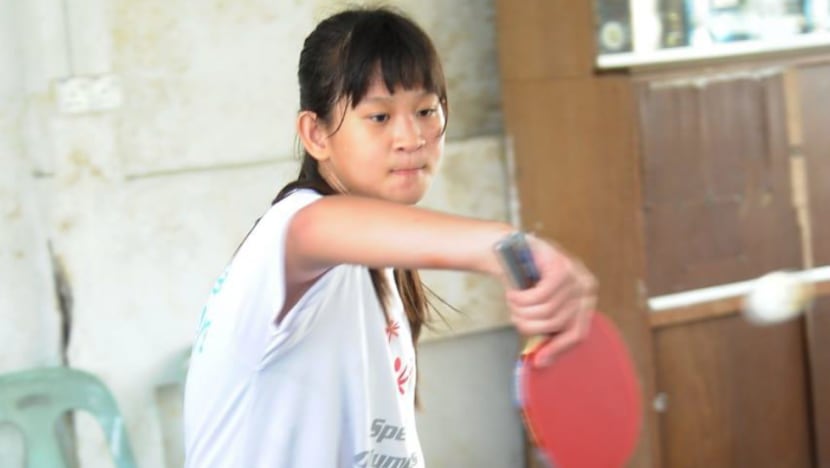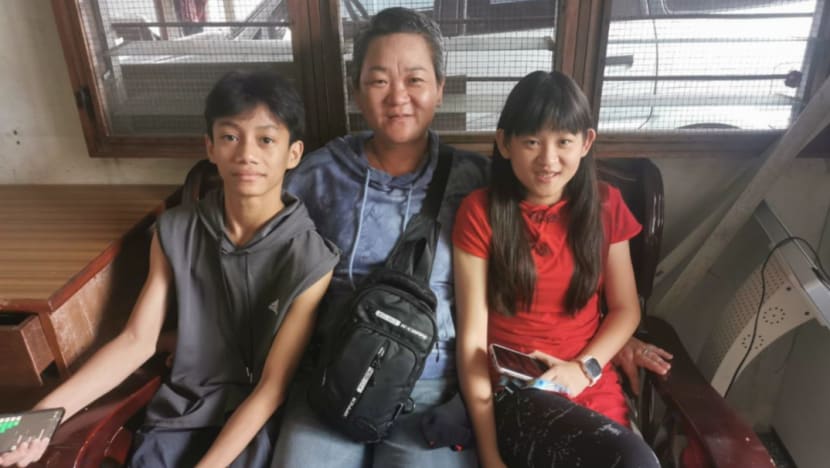
Agnes Tiong, 15, will represent Malaysia in table tennis at the upcoming Special Olympics World Games. (Photo: Special Olympics Malaysia)
Among the athletes is 15-year-old Agnes Tiong, who has multiple disabilities.

Agnes Tiong, 15, will represent Malaysia in table tennis at the upcoming Special Olympics World Games. (Photo: Special Olympics Malaysia)
MELAKA: Malaysia will send a contingent of 16 athletes with intellectual disabilities to compete in six sporting events at the upcoming Special Olympics World Games.
Among them is 15-year-old Agnes Tiong, who will be representing her country in table tennis.
She is the youngest athlete in the Malaysian contingent, and has multiple disabilities including hearing impairment and learning difficulties, her mother, Ms Chua Hong Bing told CNA.
Agnes also has a rare disorder which means her body does not produce white blood cells, so she relies on daily injections.
“Compared to other children, she is more vulnerable to infection and gets sick easily. It can be said that the hospital is her second home,” said Ms Chua.
Ms Chua has to keep a close watch on Agnes at all times, as the teen has difficulty expressing herself when she feels unwell.
Holding back her tears, Ms Chua said that everyday is a miracle as they have yet to find a cure for her blood disorder.
“We don’t know what will happen tomorrow. So all I want to say is that we try to be with each other and spend every day together happily. So that we have no regrets,” said Ms Chua.
Despite the challenges, both mother and daughter are determined to make the journey to the Special Olympics together.
They travelled about 1,000km from their home state of Sarawak to Melaka to join other athletes at a special centralised training camp recently.
The three-day camp was an opportunity for the athletes from across the country to meet each other and train together before heading to the World Games.
The Games this year will kick off on Jun 17 in Berlin and feature about 7,000 athletes with intellectual disabilities.

The Special Olympics sets itself apart from other global sporting events as it focuses on participation rather than competition.
“We want our people to realise that they are also normal human beings, they are also capable so we must accept them. Because I worry that if society does not accept them, they have nowhere to go,” he said.
It emphasises inclusion and brings communities together regardless of abilities.
In line with this, the Malaysian contingent will also include six unified partners — neurotypical individuals who will team up with some of the special needs athletes.
This helps promote friendship and understanding, said Dr Sivanesan Govindasamy who is the head of delegation for the Malaysian contingent.
He added that the athletes have been told to do their best and feel proud about their participation, regardless of the outcome.